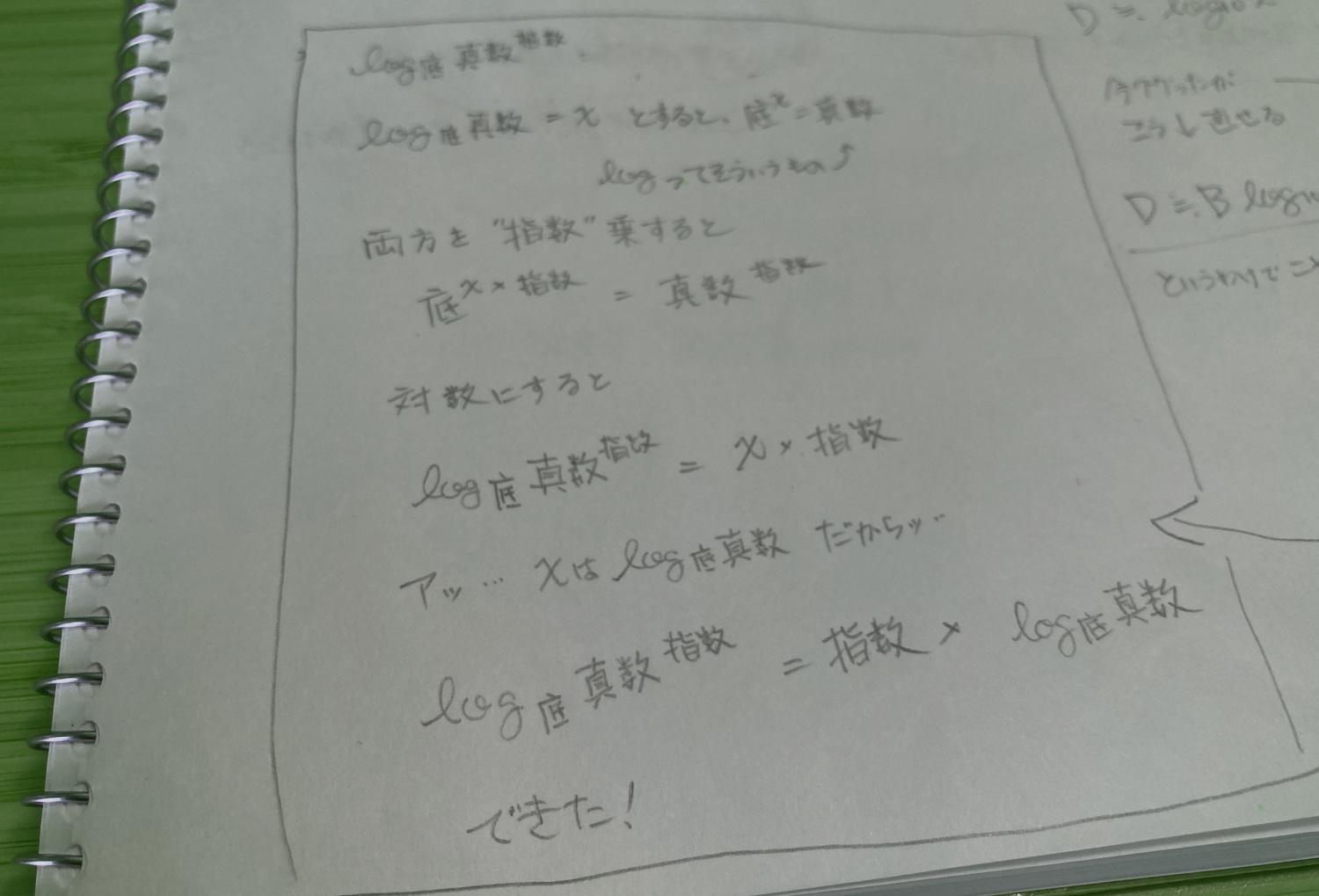Overview
Every two years, I find myself wondering "How do you do 'log' again? I don't get it." Since I have to look it up again, let's summarize it in my own words. For the sake of remembering two years later.
Logarithm-related terms
In this expression...
2^3 = 8
...the names of each component are...
base^exponent = number
And when this is expressed using 'log', it becomes...
3 = log_2(8) # It means raising 2 to the power of 3 results in 8.
...with each component named as follows:
logarithm = log_base(number)
For some reason, the exponent of the number inside 'log' can be moved in front of 'log'
It feels like "What the heck is he talking about...??", but what I want to say here is this:
log_x(y^z) = z * log_x(y)
If you look at a concrete example, you'll see it does seem to check out:
log_2(2^3) = 3 # Raising 2 to the power of 3 results in 2^3.
3 * log_2(2) = 3 # Since log_2(2) is 1, it works.
Proving the "for some reason" part
Let's prove that "the exponent of the number inside 'log' can be moved in front of 'log'".
log_x(y) = z
...let's start with that. Then it becomes this:
x^z = y
Because that's simply what a logarithm is. If you raise both sides of this equation to the power of a, it becomes this:
x^(a * z) = y^a
And if you rewrite this using 'log', it becomes this:
log_x(y^a) = a * z
Now, remember at the very beginning we wrote log_x(y) = z. Let's replace z in the above equation with log_x(y).
log_x(y^a) = a * log_x(y)
Wow...we've managed to prove that "the exponent of the number inside 'log' can be moved in front of 'log'". It's strange and fun that we can prove this by going back and forth between using 'log' and not using 'log'.
The End
Looking again at something of the level of difficulty found in a high school textbook is fun, isn't it?






